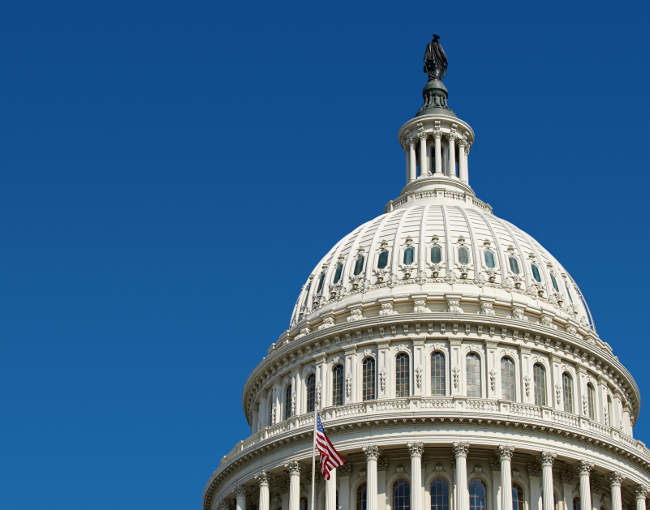As prescribed by the Twentieth Amendment, the terms of Senators and Representatives commence at noon on January 3 of each Congress, and Congress assembles that same day (unless they choose another date by law). The first day for the 115th Congress is today.
History Has Its Eyes on You
The Constitution originally required Congress to meet on the first Monday in December. The Twentieth Amendment, ratified in 1933, moved the commencement of Congresses to January 3 and the Presidential Inauguration to January 20 to limit extended lame duck sessions of Congress. Congress does often move the date back slightly in order to accommodate the calendar, but modern Congresses have always commenced the first week of January.
The Room Where It Happened
The House follows a well-worn schedule on its first day: electing the Speaker, voting on House rules, and swearing in all members. Unlike the House, the Senate considers itself a continuing body because approximately two-thirds of its members remain in office through each election. As a result, the Senate does not need to fully reorganize every Congress or reapprove rules. On its first day, the Senate swears in newly-elected (or re-elected) members, notifies the President and House of the appointment of a President pro tempore, and adopts administrative orders for the new Congress. Additional votes are required in the Senate, however, if control shifts from one party to the other. In both chambers, pending legislation from the prior Congress gets wiped clean, and the introduction of bills starts anew.
What Comes Next
The freshman class of the incoming 115th Congress includes seven new senators and more than 50 new representatives. In the first weeks prior to and following the inauguration of President-elect Trump, the Senate will be focused primarily on its constitutional duty to provide advice and consent to the President's Cabinet. Hearings for Trump's nominees begin over the next few days.
Republicans have a busy agenda with unified control of Congress and the White House. Important items for the GOP in the first months of the year will be replacing Obamacare, tax reform, infrastructure, and FY2017 spending. Then-President Trump should highlight many of these points when he addresses Congress in late January or early February.





